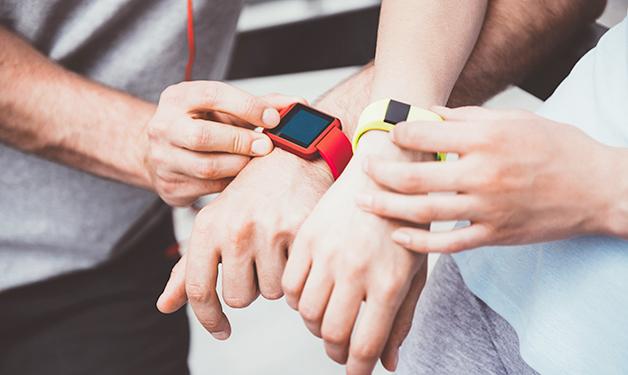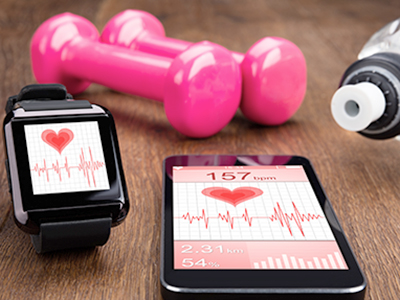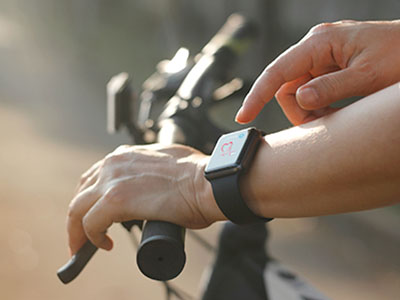
Wearable health monitors can track your every movement, but at what cost?
It is a $14 billion (and growing) worldwide market: wearable devices that record how many steps we take, how many calories we burn, and how fast our heart is beating. And these devices, which range from smart watches to smart glasses to in-ear monitors, are becoming increasingly sophisticated. Handheld devices and newly released smartwatches can even conduct electrocardiograms in the comfort of your home. But at what cost? Vancouver Coastal Health Research Institute scientist Dr. Jason Andrade and his colleague Dr. Chris Cheung are raising a caution flag in the face of what they call ‘a new frontier in medicine’. In a recent article in the Canadian Journal of Cardiology, the two cardiologists discuss the pros and cons of these consumer devices.

“It’s a tsunami that’s coming. There is so much personal health data generated from these devices and as a medical community, I’m not sure if we are prepared to manage it," says Cheung.
Cheung says clinicians will also have to find a way to sort through and differentiate the influx of patients to find out which cases are serious and which are not. “If someone is healthy and picks up an incidental rapid heartbeat, does that have the same significance as someone who has multiple health issues and picks up a rapid heartbeat? Those are two very different patient groups and we have to learn how to interpret the data accurately.”

Andrade shares Cheung’s concerns. “On the plus side, wearables make information easily accessible and provide answers quickly. In some cases they can take the place of clinical testing. But the downside is that over-monitoring can create anxiety about conditions that may not be relevant.”
“The risk is the medicalization of normal life. People can become fixated on these trackers and the data they generate, causing unnecessary stress,” says Andrade.

Andrade has already witnessed this problem with home blood pressure monitors. “We know that monitoring your blood pressure at home is a very useful way to be engaged in your health and ensure that the condition is adequately controlled, but the worry is that over-monitoring can result in a deluge of information. We have to find a balance between useful information and too much information.”
False positives and real costs
In their article, written with colleague Dr. Andrew Krahn, Andrade and Cheung compare the accuracy of different wearable technologies for detecting heart arrhythmia. What they found was a mixed bag. While many are not that precise, there are some that approach 97 per cent accuracy. That sounds impressive, but given the scale of consumer use—about one billion devices are expected to be in use by 2021—that is a lot of false positives to contend with.
Andrade gives the example of atrial fibrillation, which occurs in roughly one per cent of the general population. Andrade says having a three per cent false positive rate (which is on the low end of estimates) means a lot of unnecessary and expensive testing and follow-up. “Even the more accurate devices will identify a higher number of people as having the disease when they don’t. So we’ll be spending more time disproving diagnoses than verifying diagnoses.”
"We don’t want to drive up health care costs with a lot of false warnings.”
Andrade notes a recent case of football fans watching their favourite team stage a dramatic comeback. Some fans wearing smart watches were alerted that they had an abnormal heart rate. “Their heart rate was only going up as a normal response to excitement, but the watches couldn’t tell the difference.”

“While these new technologies are exciting, and offer benefits if used appropriately, you should talk with your doctor before investing hundreds of dollars in something you may not need and that may cause you needless worry.”
Both researchers acknowledge the growing popularity of wearables and how their profession needs to rise to the challenge.
“We need to build our own familiarity with these devices,” says Cheung, “And run our own studies to learn more about how they work, how reliable they are and how we can integrate them into our daily practice.”


